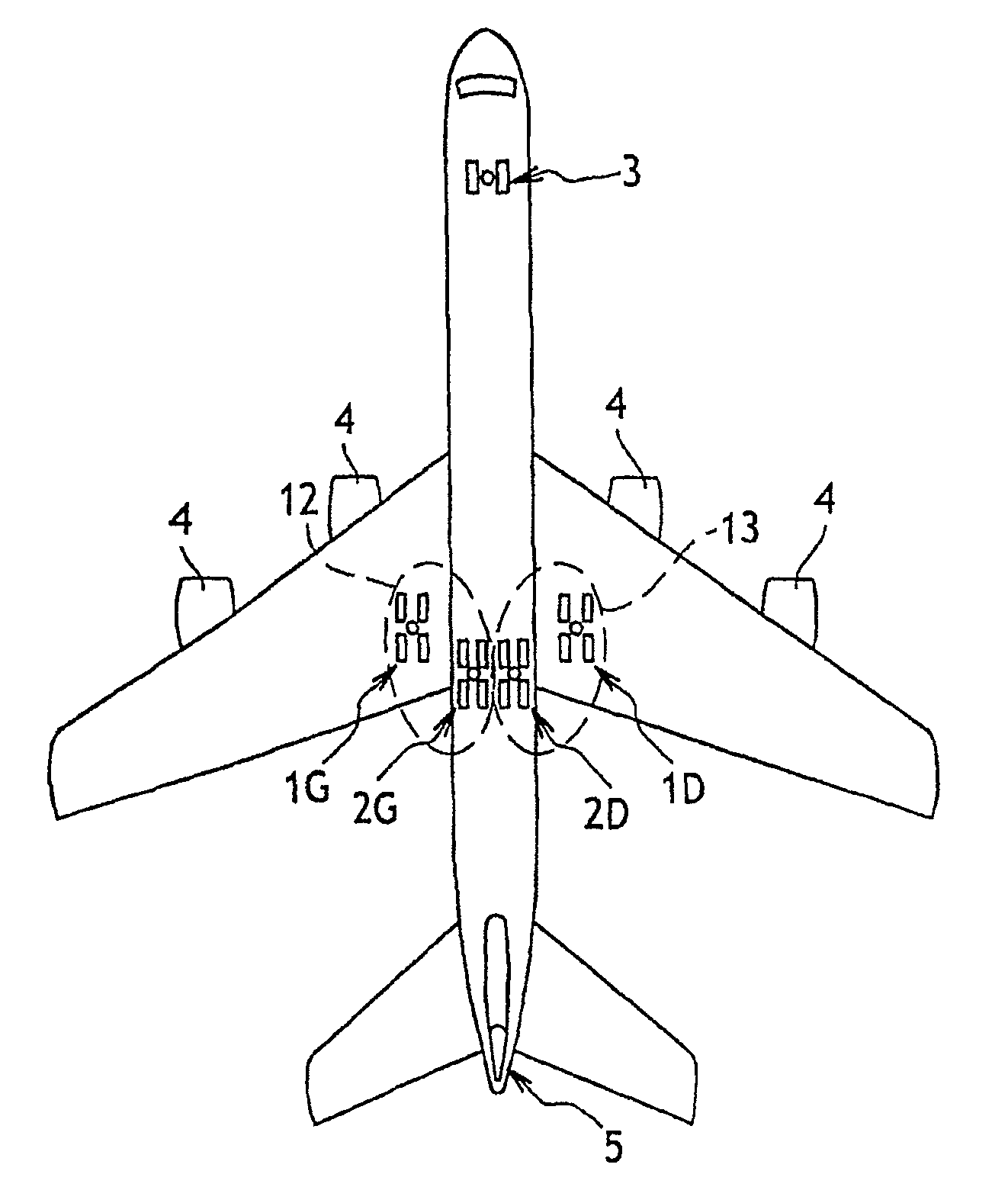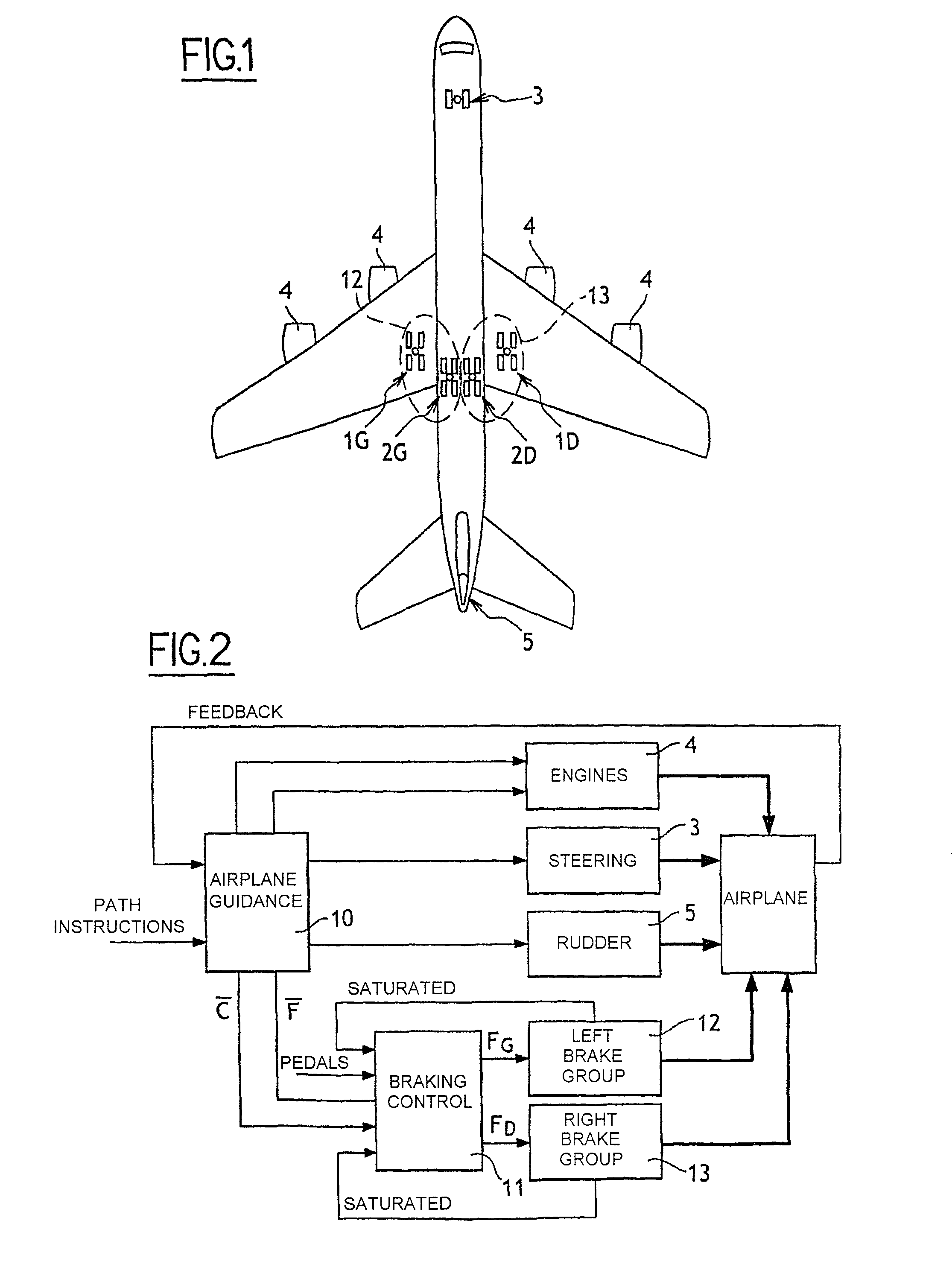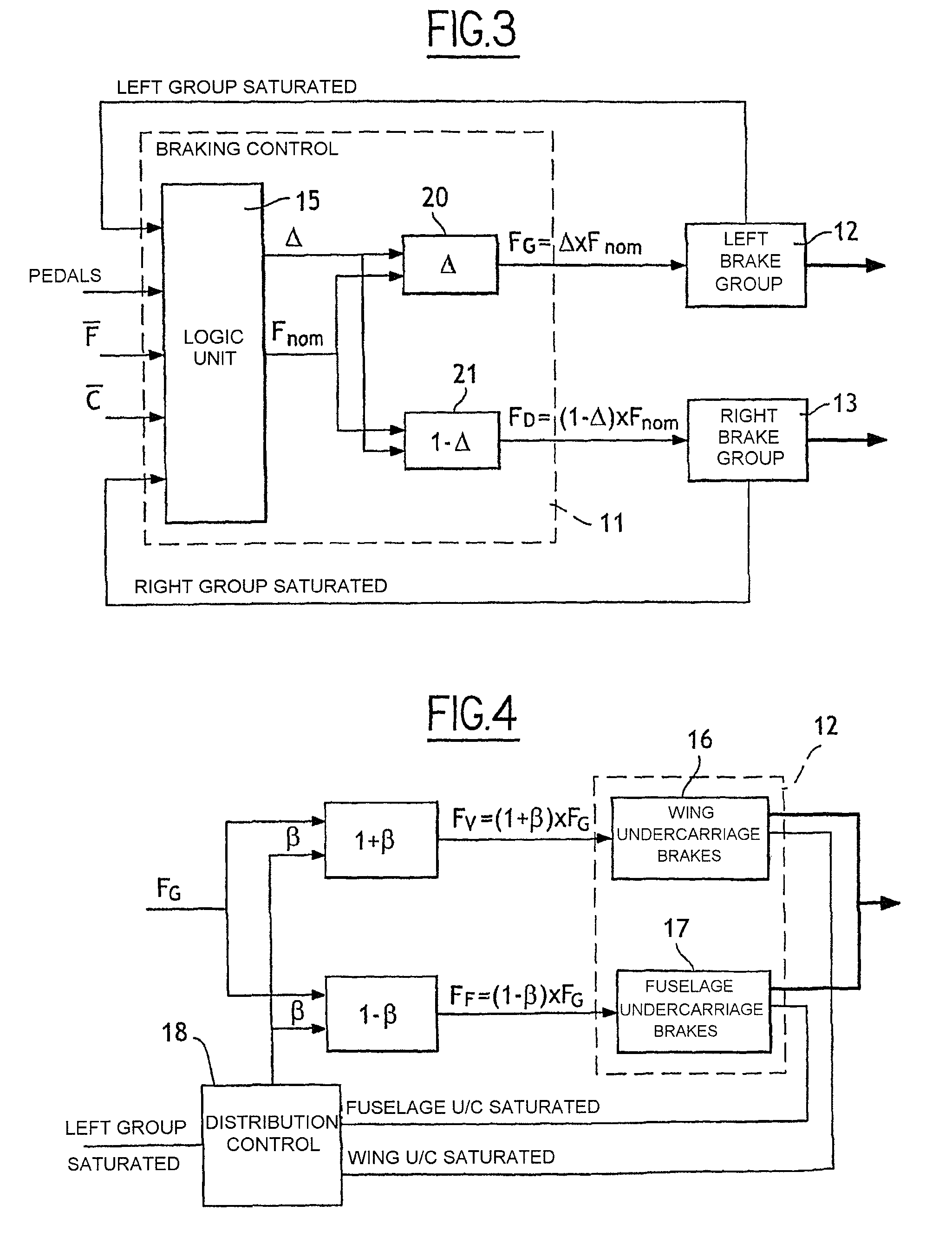Method of distributing braking within at least one group of brakes of an aircraft
a technology of aircraft brakes and brakes, applied in the direction of automatic braking sequence, instruments, navigation instruments, etc., can solve the problem of not being able to determine in advance how the braking force will be distributed, and achieve the effect of increasing the life of the brakes
- Summary
- Abstract
- Description
- Claims
- Application Information
AI Technical Summary
Benefits of technology
Problems solved by technology
Method used
Image
Examples
Embodiment Construction
[0027]The invention is illustrated herein with reference to an aircraft of the kind shown in FIG. 1, having two main wing undercarriages 1G and 1D, two main fuselage undercarriages 2G and 2D, and a nose undercarriage 3 with steerable wheels. Each of the main undercarriages 1G, 1D, 2G, 2D has four wheels equipped with respective brakes. The aircraft is also fitted with engines 4, and with a rudder 5.
[0028]The invention applies to a ground-guidance architecture for the aircraft shown in FIG. 2 that includes an aircraft guide module 10. The guide module 10 receives as input a path setpoint (which may, where appropriate be rectilinear) and it controls all of the members that can have an influence on the path followed by the aircraft on the ground, i.e. the engines 4, the steering of the wheels of the nose undercarriage 3, the rudder 5, and naturally the brakes of the main undercarriages.
[0029]The guide module 10 generates orders for the engines 4, for the rudder 5, and for controlling t...
PUM
 Login to View More
Login to View More Abstract
Description
Claims
Application Information
 Login to View More
Login to View More - R&D
- Intellectual Property
- Life Sciences
- Materials
- Tech Scout
- Unparalleled Data Quality
- Higher Quality Content
- 60% Fewer Hallucinations
Browse by: Latest US Patents, China's latest patents, Technical Efficacy Thesaurus, Application Domain, Technology Topic, Popular Technical Reports.
© 2025 PatSnap. All rights reserved.Legal|Privacy policy|Modern Slavery Act Transparency Statement|Sitemap|About US| Contact US: help@patsnap.com



